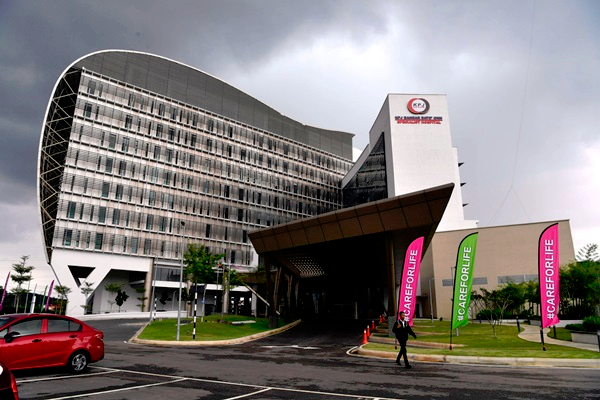PETALING JAYA: The Malaysian healthcare tourism sector has fallen victim to the Covid-19 pandemic.
Once poised to become the centre for mainly elective healthcare services catering to the needs of foreign visitors, the country has seen a drastic drop in demand for such services.
According to the Malaysian Healthcare Travel Council (MHTC), the medical tourism sector has shrunk by 70% to 75% in the few months since the Covid-19 crisis hit.
This is to be expected, given the restrictions on travel put in place to stem the Covid-19 outbreak, according to Prof Dr April Camilla Roslani, president of the Academy of Medicine of Malaysia (AMM).
“The strict enforcement of the standard operating procedures (SOP) means that many people would not have been able to fulfil the criteria for entry,” she told theSun yesterday.
Malaysia was already on track to see exponential growth in its healthcare tourism sector when the pandemic started, MHTC chief executive officer Sherene Azli said.
Plans had been laid out to welcome tourists who seek leisure as well as healthcare under its “Visit Malaysia Year 2020” and “Malaysia Year of Healthcare Travel 2020” campaigns that were to proceed simultaneously.
There was optimism given its track record. From 2015 to 2019, the compound annual growth rate for the travel healthcare segment rose 17%, compared with the average of 12% to 14% for the Asia-Pacific region.
By 2019, the global healthcare travel market was already valued at US$44.8 billion (about RM190 billion at today’s exchange rate) and was looking forward to an expected 21.1% growth.
“However, as we have seen, the pandemic has effectively brought the market to a standstill,” Sherene said.
“Industry experts don’t expect to see a recovery until 2021 or beyond.”
Nonetheless, MHTC is not sitting idle. “We are shifting our focus to the digital realm. We ensure that Malaysian healthcare services remains visible across our target markets,” she said.
Sherene said MHTC continues to collaborate with the Health and Finance Ministries, the Association of Private Hospitals Malaysia and its members to discuss new ideas and possible solutions to hasten economic recovery,” she added.
However, she concedes that recovery is still a long way off.
“Small steps towards rejuvenation are important so most of our efforts are short term, aimed at driving Malaysia’s image as the world’s healthcare marvel,” she said.
Sherene said the adoption of telehealth as part of the digitalisation process has also come to the forefront.
“Through telehealth, we can now connect with our patients digitally and deliver quality healthcare regardless of geographical location,” she said. “This ensures continuity of care.”
Roslani said steps taken to confine Covid-19 treatment only to selected hospitals have ensured that services such as elective surgery can continue in other health institutions.
However, she said, extending such services would entail coordination among the stakeholders to ensure strict adherence to SOP as well as the management of expectations.
















